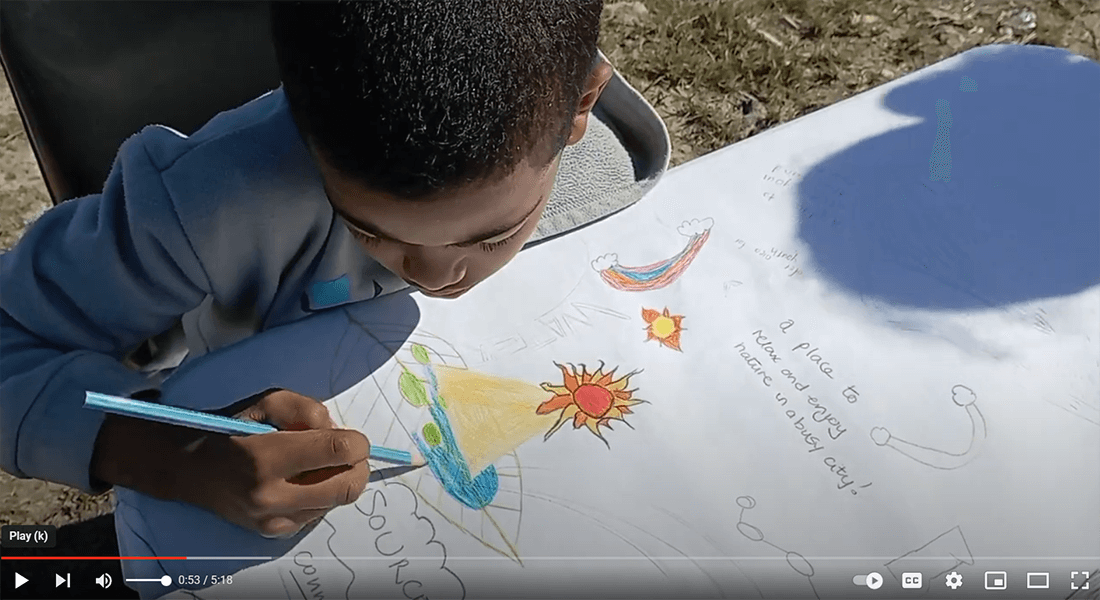Pathways to water resilient South African cities (PaWS)
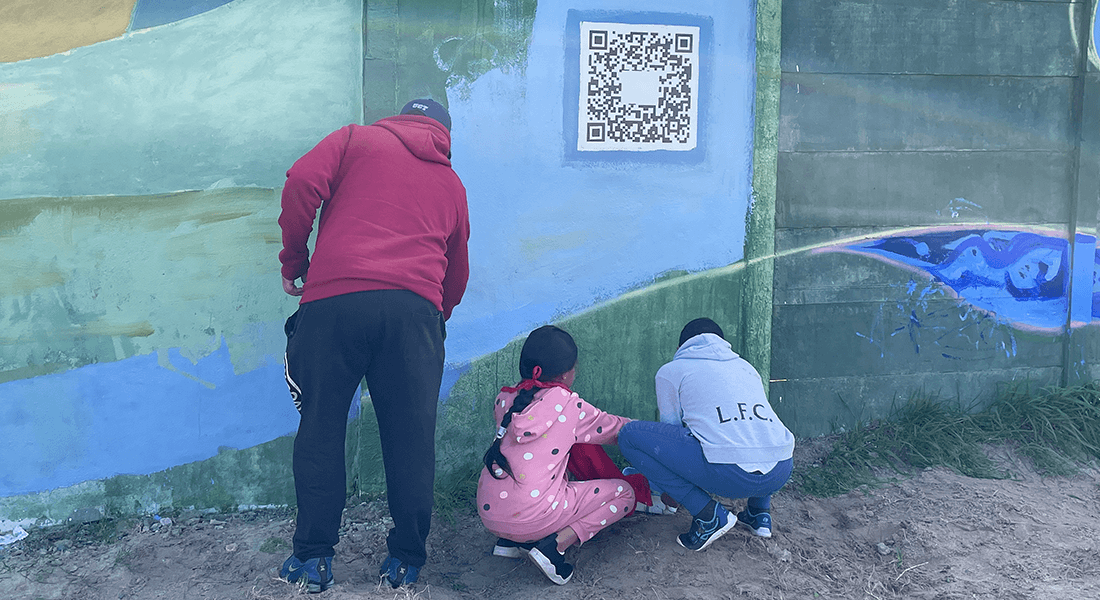
Background
Water management is an essential part of urban sustainability. However, existing centralised water provision models are increasingly viewed as ill-suited to address prevailing problems including climate change and resource pressures. There are increased calls for adaptive urban water governance to address the environmental and socio-economic uncertainties confronting urban water systems.
’Sustainable urban Water management’
Sustainable urban water management (SUWM) is an umbrella term for various nature-based approaches to water management that take a total urban water cycle view through the integration of built water infrastructure with green infrastructure in a decentralised manner. Approaches that link storm-runoff and wastewater to water supply are also known as Water Sensitive Urban Design (WSUD), Sustainable Drainage Systems (SuDS); they help to return urban rainfall-runoff processes to natural hydrological cycle flows, by reducing runoff volumes and peak flows, improving infiltration, and reducing pollutant loads.
Improved water supply
There is a need to explore under-exploited water resources such as stormwater harvesting and managed aquifer recharge with treated sewage effluent that can simultaneously augment water supply and enhance urban resilience. However, the quality of stormwater in South African cities is generally poor due to infrastructure deficits, with point and non-point source pollution in runoff flows. Harnessing SWH and MAR with treated effluent would be more feasible if the quality of runoff being infiltrated or stored is improved through pre-treatment with green infrastructure options such as swales, biofiltration cells and constructed wetlands. These elements also offer cities the benefits of flood risk management and improved biodiversity, opportunities for food production through edible green infrastructure and increased liveability.
Improved water governance
Whilst there is consensus within the urban water fraternity on the need for a shift to more adaptive approaches, how such transformations in the design, implementation and governance can be realised remains unclear, particularly in the highly compartmentalised infrastructure sectors typically found in South African cities.
Recognising the economic, environmental, technological and governance challenges in the South African urban water sector, the South African government developed the Water Research Development and Innovation Roadmap. One focus area is the unlocking of water supply alternatives such as SWH and groundwater through the use of WSUD approaches. There is a need for assessing the technical feasibility of these alternatives and the governance implications of hybridising built water infrastructure with nature-based solutions. The project will also contribute to the achievement of SDG’s 6, 9, 11, 13 and 17 of ensuring access to drinking water and integrated water resources management; promoting urban resilience to climate change and cooperative governance for sustainable development. It will also support the national priority of increased urban green infrastructure and facilitating engagement and coordination between stakeholders in the management of human settlements.
Scientists from Cape Town University and the University of Copenhagen have been working together for the past four years on making South African cities more 'water resilient' as part of the Danida funded research project “Pathways to water resilient South African cities (PaWS)”.
The PaWS project works to promote NBS and water sensitive design and a more coherent and effective blue-green infrastructure in SA cities. The objectives are to establish and experiment with actual on-ground multifunctional nature-based-solutions, to monitor them and engage local residents as well as city stakeholders in their implementation, management and maintenance to increase learning and push for a transition towards urban water resilience.
In a stormwater pond in a low-income area (Mitchells Plain), a NBS water experiment has been established, renovated and expanded in collaboration with local residents. The local NBS has eg. resulted in better stormwater quality, a greener space where native species are coming back and local residents take ownership and responsibility for the maintenance.
The project also involves in monitoring, giving input to design and plans and evaluating the functioning of solutions in other real life sites across the city in collaboration with city officers, private developers and NGOs – to promote NBS through upscaling and institutionalizing water sensitive practices and knowledge across the city.
Further, a screening tool of stormwater ponds has been developed to aid practitioners to assess the suitability of areas. A Community of Practice (COP) of SA practitioners, researchers, NGOs in water resilience has been set up and continues to meet. All project activities have been planned and done in collaboration between the SA and DK researchers.
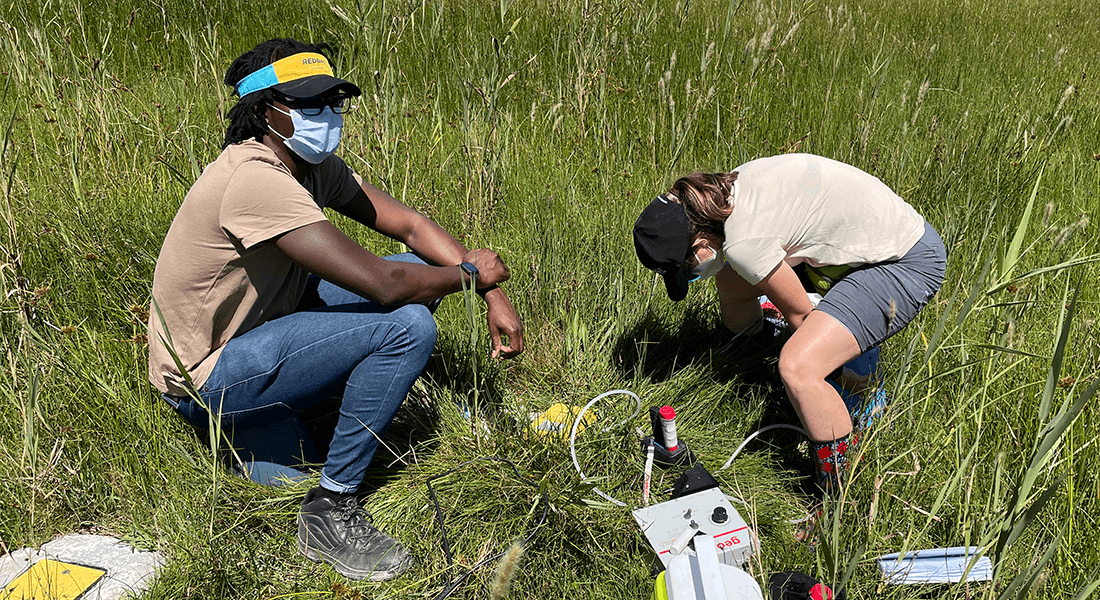
Considering the rapid urban growth and competition for land in most African cities, the broadening of the utility of stormwater ponds beyond stormwater management functions should be considered. They provide opportunities to widen the functionality and value of underutilised urban landscapes in ways that can illuminate our understanding of the possible pathways for achieving urban water resilience. The overall research question is “What are the opportunities for repurposing existing stormwater infrastructure as BGI with multiple functions to achieve water resilient South African cities?” PaWS2 has four main objectives to meet the research question:
- To quantify and typologize the potential for repurposing stormwater ponds as multi-functional BGI in Cape Town through the development of a Geographic Information System (GIS) based screening tool for supporting site selection and design of WSUD interventions.
- To experiment with and evaluate different techniques and landscape designs to widen the functions of ponds beyond flood control and water supply purposes (the focus of PaWS1), and consider their combination with other ecosystem services (ESS) that match BGI-related community needs and support the city’s broader water resilience aspirations; and to formulate a toolkit to provide guidance on how monofunctional/‘dead’ ponds can be transformed into robust, active BGI nodes while retaining functions of flood management.
- To establish knowledge on how to facilitate the transdisciplinary coproduction of site-specific integrated landscape management approaches by engaging with local residents, researchers, civil society and municipal actors through arena activities accompanying the experimentation around two retrofitted multifunctional stormwater ponds (above).
- To distil insights from the above objectives on the types of governance processes and arrangements that can best support the institutionalisation of repurposed multifunctional stormwater ponds as co-managed BGI, and to embed the insights into relevant actor networks to support social learning about WSUD and the consolidation of a targeted Community of Practice (CoP) around water resilience in RSA.
Thus, Objective 1 provides an overview of the potential of repurposing some of the existing 800 stormwater ponds in Cape Town to multipurposed BGI-nodes and gives insight into how to identify relevant WSUD options in different settings around the city.
Objectives 2 and 3 explore the physical landscaping options for two selected ponds and the associated local community involvement to learn about site specific constraints and opportunities of repurposing stormwater ponds.
With Objective 4, the learnings from Cape Town on repurposing stormwater ponds are generalized and shared at national level.
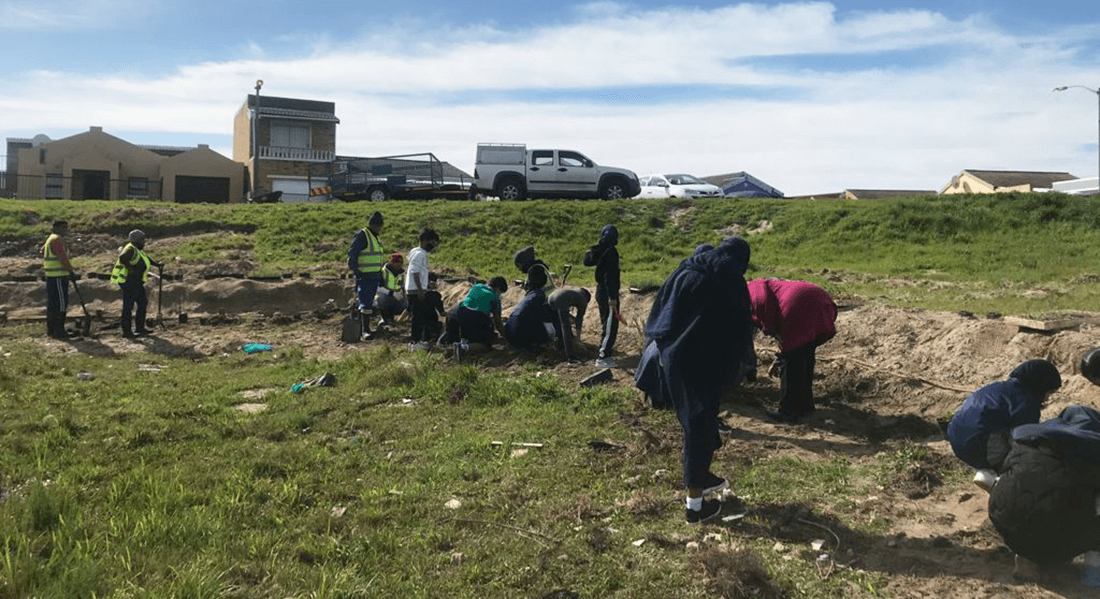
South African cities make use of stormwater detention ponds to manage excess storm flows. In Cape Town over 800 such ponds exist. The PaWS team designed and established together with local residents a nature-based solution to retrofit a mono-functional pond into a stormwater management hub with multiple functions. During a two-month construction process local youths took part in building litter traps, sandbag walls, and dig trenches which provided them with paid work, new skills; as well as allowing for the mutual transfer of socio-ecological knowledge. The redesign created infiltration areas to promote Managed Aquifer Recharge (MAR) – a process wherein groundwater is replenished by purposefully infiltrating water into an aquifer below – and then incorporated landscaping to extend the pond’s amenity functions. The research team has monitored the experiment throughout and the repurposing has improved the stormwater quality markedly and maximised the groundwater recharging volume while still guaranteeing that the pond achieves its core function of handling rainwater during storms. The complexity of the technical interventions and cost for materials have been kept low so that local residents and stakeholders are able to manage the maintenance themselves afterwards.
Various engagement activities have been taking place continuously to build stewardship; for example, involving school children in planting sponsored by a local garden centre, study trips for local women to nature reserves, painting of a large mural on boundary walls facing the pond.
Interviews, observations and the local WhatsApp groups show that the close interaction with the site have made local residents use it more, given them a sense of ownership but also an ecological literacy. They now notice birds and flowers (post them on WhatsApp), which they never saw before when the site was considered no more than a nuisance that attracted crime and informal settlers.
In PaWS2 engagement activities around the pond have been continued and expanded. Repair and redesign of experiment: mole barriers, outlet weir, sandbag repair etc. – for the next wet season, continuing data collection and monitoring as well as other forms of monitoring such as biodiversity. Landscaping and vegetation – harvesting plants, propagating, demonstration planting etc. have also been major activities. There is also a focus on the co-production of a landscape management and maintenance plan for the pond area in collaboration between local residents, city people and the research team, as well as the forming of a group like a ‘Friends of...’ that can take on the daily maintenance and the handover of the pond experiment and park after the project.
Learn more
-
Follow the link to see activities at the pond – DANIDA PaWS Engagement Activities | Future Water Institute (uct.ac.za)
-
Read more about the pond activities in the brief ‘Rethinking stormwater management – harnessing multifunctional stormwater ponds for water resilience’
- See short film on the pond experiment
- Look here for activities in the pond
Read the two scientific papers for more analysis:
- Mclachlan, J., Tanyanyiwa, C.T., Schneuwly, R., Carden, K., Armitage, N.P., Abrams, A., Mguni, P. and Herslund, L.B., 2023: Pathways to water resilient South African cities–from mono-functional to multi-functional stormwater infrastructure. Scientific African.
- Tanyanyiwa, C.T., Abrams, A.L., Carden, K., Armitage, N.P., Schneuwly, R., Mguni, P., Byskov Herslund, L. and Mclachlan, J., 2023: Managing stormwater in South African neighbourhoods: when engineers and scientists need social science skills to get their jobs done. AQUA-Water Infrastructure, Ecosystems and Society.
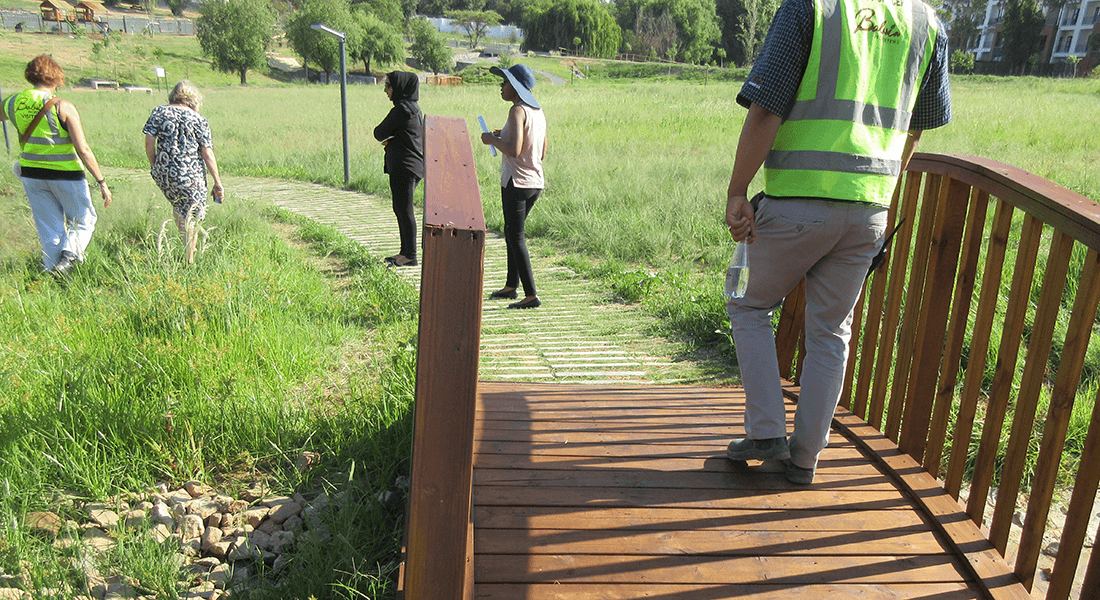
In Johannesburg, the PaWS team has been examining already implemented nature-based solutions (NbS) and explored what has worked, not worked and whether there are missed opportunities both in relation to actual water management (water quality and quantity) as well as in respect of governance and the integration into the urban water cycle. The research showed that water quality can be improved by implementing NbS but also that some solutions due to bad designs and limited maintenance perform poorly.
The evaluations showed that limited capacity and poor coordination and collaboration between city practitioners, private developers and consultants often result in faulty designs. Also, implementation with ambiguity as to the management and maintenance roles of different actors after implementation leaves some solutions in disrepair. This ambiguity limits the learning from WSD projects which remains scattered and tacit.
Learn more
See a short Brief with the title ‘Understanding the impact of WSD in Johannesburg’
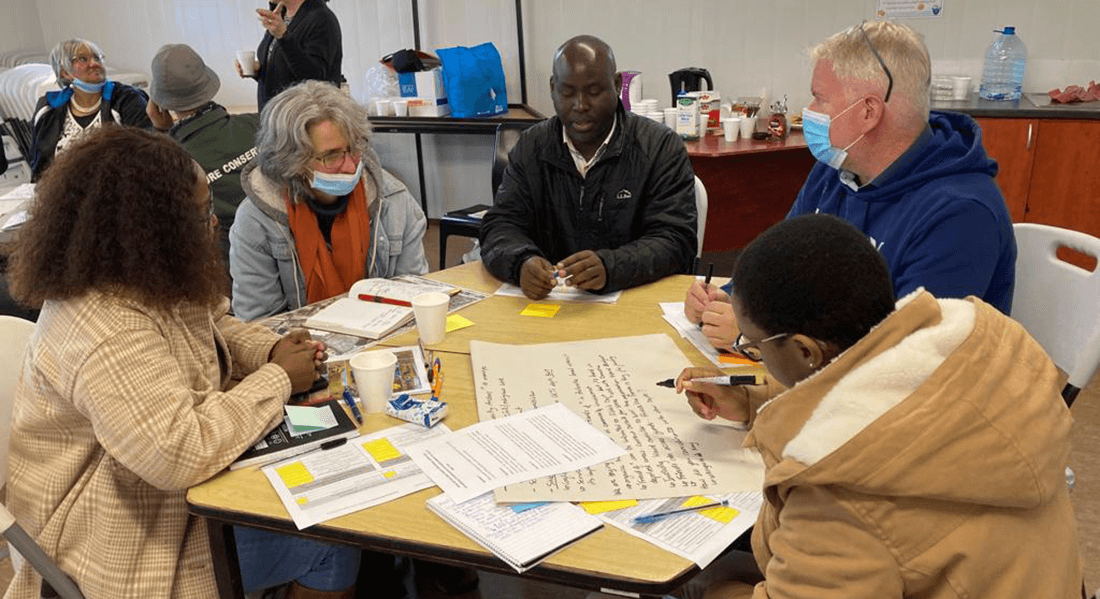
Throughout the project the research team have involved a broad section of practitioners (not only the WSD ‘converted’) in meetings and our experiments. We have assessed and explored whether and what enabling factors exist for water resilience through interviews, surveys, trainings, focus groups with key city practitioners, officials, consultants, experts. Water resilience is now a recognised issue embedded in policy and legislation – certainly in selected metropolitan cities around South Africa. There is now policy and legislative support for a different way of thinking.
The most recent references to water resilience can be found in climate change policy, new water strategy, and in resilience strategy. There is mention of stormwater management, diversification of water sources. Stormwater issues and resilience are not only about flood control but also reuse and supply as well as amenity, green space etc. Therefore, a transition towards water resilience is emerging but there is a lack of coordination, a limited understanding of WSD and NbS and capacity constraints have a negative impact on further consolidation of the WSD approach. Urban practitioners struggle to reconcile visions of sustainability to be realised through nature-based urban development with the pressing infrastructure deficits that persist in most South African cities. WSD remains mainly in visions and policies whilst implementation lags behind.
A Community of Practice (COP) of South African practitioners, researchers, NGOs in water resilience has been set up and continues to meet online.
Learn more
See link for the schedule of Community of Practice past and future events
Also check out tool for assessing potential of ponds: Fell, J. 2022. Stormwater ponds for sustainable and water resilient cities: Overflowing with potential. ArcGIS StoryMap
Read the two scientific papers for more analysis:
Mguni, P., Abrams, A., Herslund, L.B., Carden, K., Fell, J. and Armitage, N., 2022: Towards water resilience through Nature‐based Solutions in the Global South? Scoping the prevailing conditions for Water Sensitive Design in Cape Town and Johannesburg. Environmental Science & Policy, 136.
Carden, K and Fell, J. 2021. A Community of Practice Approach to Planning Water Sensitive Cities in South Africa. Urban Planning, 6(4), pp.110-121. (This paper has PaWs as one of its case studies).
The project is being led from University of Copenhagen with most research activities based in South Africa and directed through project team members from the Future Water research institute at the University of Cape Town.
The following researchers and students comprised the resources on the project to date.
- A/Prof Lise Byskov Herslund, University of Copenhagen (Pl)
- Dr Kirsty Carden, University of Cape Town (Pl)
- Prof Marina Bergen Jensen, University of Copenhagen
- Assistant Prof Patience Mguni, University of Copenhagen
- Prof Neil Armitage, University of Cape Town
- Dr John Okedi, University of Cape Town
- Dr Amber Abrams, University of Cape Town (Postdoctoral research fellow)
- Mr Craig Tanyanyiwa, University of Cape Town (PhD student)
- Ms Julia Mclachlan, University of Cape Town (PhD student)
- Ms Rachelle Schneuwly, University of Cape Town (Msc student)
- Ms Jessica Fell, University of Cape Town (PhD student)
- Ms Sansha van der Merve, Witts University (PhD student)
Publications
Newsletters
- The Pathways to Water resilient South African cities newsletter. Stormwater ponds for a water resilient Cape Town: overflowing with potential? November 2023
- The Pathways to Water resilient South African cities webinar series no2. Stormwater ponds: 'stepping stones' to urban biodiversity? February 2024
Briefs
- Rethinking stormwater management – harnessing multifunctional stormwater ponds for water resilience
- Understanding the impact of WSD in Johannesburg
- Mural process
Videos
Scientific papers
PaWs team editors of Special Issue of Frontiers in Sustainable Cities: Governing Hybrid Urban Infrastructure – The Co-production of Decentralised, Nature-based and Localized Solutions.
Herslund, L. Carden, K and Mguni, P. Editorial: Governing Hybrid Urban Infrastructure - The Co-Production of Decentralized, Nature-Based and Localized Solutions. Frontiers in Sustainable Cities. 2023.
Mclachlan, J., Tanyanyiwa, C.T., Schneuwly, R., Carden, K., Armitage, N.P., Abrams, A., Mguni, P. and Herslund, L.B., 2023: Pathways to water resilient South African cities–from mono-functional to multi-functional stormwater infrastructure. Scientific African.
Tanyanyiwa, C.T., Abrams, A.L., Carden, K., Armitage, N.P., Schneuwly, R., Mguni, P., Byskov Herslund, L. and Mclachlan, J., 2023: Managing stormwater in South African neighbourhoods: when engineers and scientists need social science skills to get their jobs done. AQUA-Water Infrastructure, Ecosystems and Society.
Mguni, P., Abrams, A., Herslund, L.B., Carden, K., Fell, J. and Armitage, N., 2022: Towards water resilience through Nature‐based Solutions in the Global South? Scoping the prevailing conditions for Water Sensitive Design in Cape Town and Johannesburg. Environmental Science & Policy, 136.
Carden, K and Fell, J. 2021. A Community of Practice Approach to Planning Water Sensitive Cities in South Africa. Urban Planning, 6(4), pp.110-121. (This paper has PaWs as one of its case studies).
Read more on recent PaWS presentations on the homepage of University of Cape Town 'PaWS Outputs'.
Funding
The project is funded by Danida’s Window 2 programme and is a collaboration between the University of Copenhagen, Department of Geosciences and Natural Resource Management (IGN) and University of Cape Town, Future Water Research Institute.
We have secured a three year extension of the project – PaWS 2, which started on 1 November 2022.
Project: Pathways to water resilient South African cities (PaWS)
Coordinator: Lise Herslund
Start/end: May 1, 2019 - October 31, 2025

